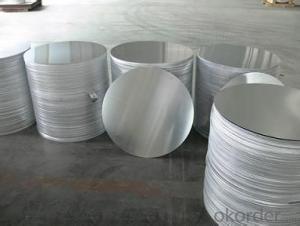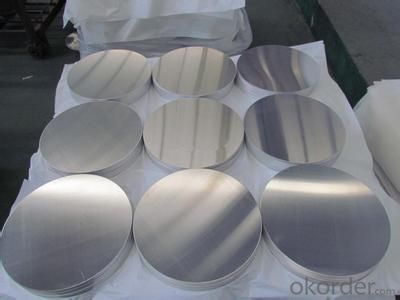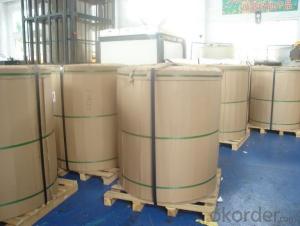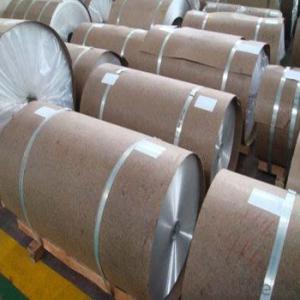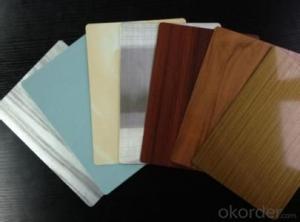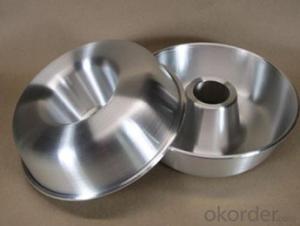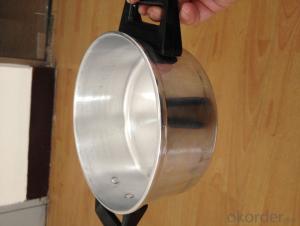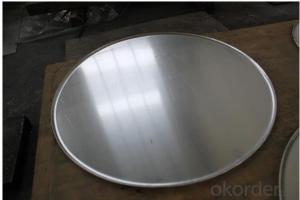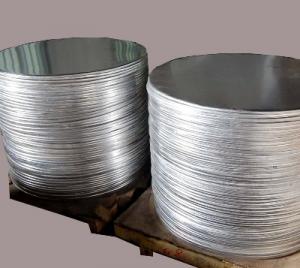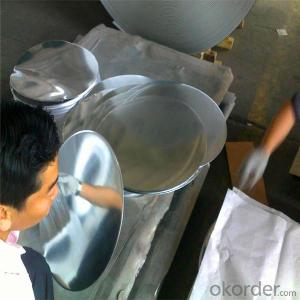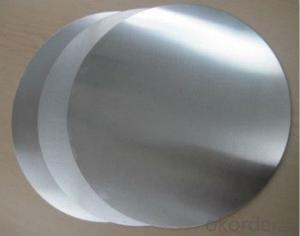Aluminum Coil Lowes Cold Casting Aluminium Circle for Cookware Material
- Loading Port:
- Shanghai
- Payment Terms:
- TT OR LC
- Min Order Qty:
- 2 m.t.
- Supply Capability:
- 60000 m.t./month
OKorder Service Pledge
OKorder Financial Service
You Might Also Like
Specification
Cold Casting Aluminium Cirlce For Cookware Material
Description
Thickess | 0.55MM-8.0MM,As your request |
alloy | Aluminum circle Alloy 1050,1060,1100,3003 |
Temper |
H12.H14,H16,H18,H24,H26.O |
Diameter |
80mm-1200mm |
Dimensions | can be produced according to your specifications |
Advantage | Though smelting, casting, hot-rolling, cold-rolling, heat-treatment, finishing and other technology, the heavy melting alminium and an appropriate quality of alloying elements is processed to light nonferrous metal material which has the characters of fine luster, good looing, light weight, poisonless and smellessncss, and it also has good propertles of transmitting electric current and heat, processing and corrosion-resisting Applicability |
Application | The product is widely used in cold-extrusion, Reflector, Traffic sign or deeply-drawing for making electric rice cookers, non-stick pans/pots, kitchens, cookware, cooking-utensil |
Packing detail | Export standard package, bundled or be required. The inner size of container is below: 20ft GP: 5.8m(length) x 2.13m(width) x 2.18m(high) about 24-26CBM 40ft GP: 11.8m(length) x 2.13m(width) x 2.18m(high) about 54CBM 40ft HG: 11.8m(length) x 2.13m(width) x 2.72m(high) about 68CBM |
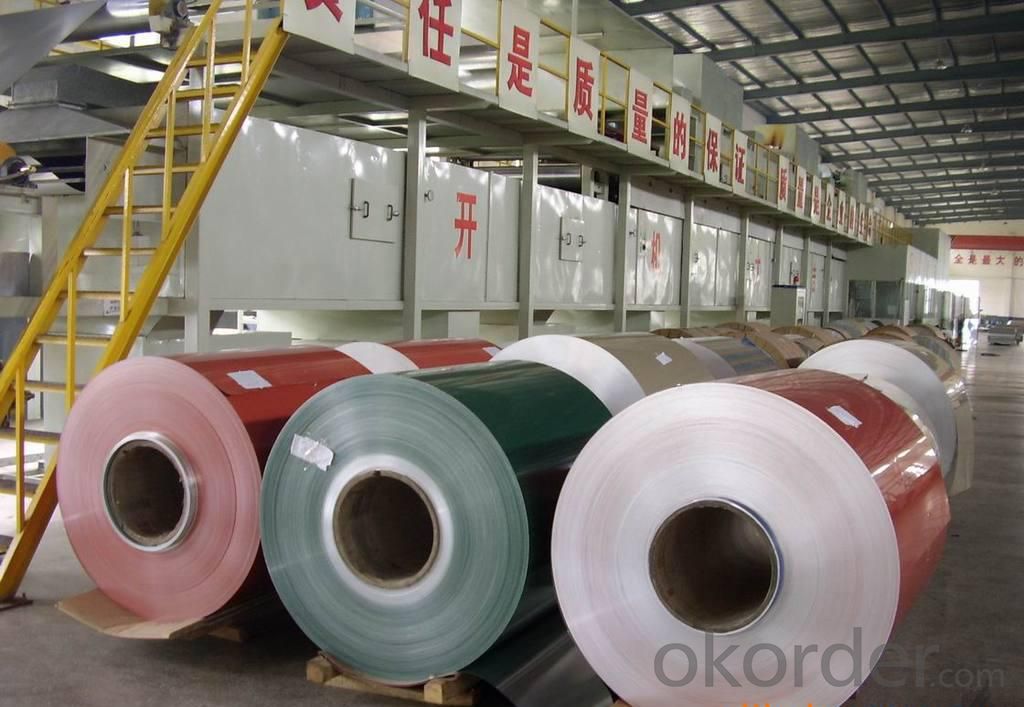
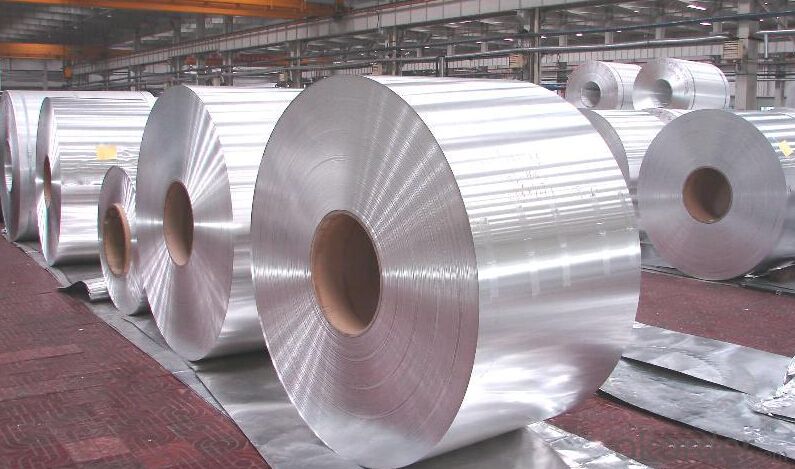
FAQ
--Q: Do you provide free samples?
--A: Yes, free samples will be sent to you on freight at destination.
--Q: Can I get your latest products catalogue?
--A: Yes, it will be sent to you in no time.
--Q: What is the MOQ?
--A: 2 tons
--Q: What are your payment terms?
--A: We accept L/C, T/T.
--Q: What kinds of alloy can you supply?
--A: 1000 series: 1050, 1060, 1070, 1100, 1145, 1200
3000 series: 3003, 3004, 3105, 3104
5000 series: 5052, 5083, 5754, 5182
6000 series: 6061, 6063, 6062, 6063
8000 series: 8011, 8021
--Q: What kinds of temper can you supply?
--A: O-H112: O,H12,H14,H16,H18,H22,H24,H26,H,32,H34,H111,H112
T3, T4, T6
- Q: How do aluminum coils contribute to the thermal conductivity of products?
- Aluminum coils play a significant role in enhancing the thermal conductivity of various products. Due to the exceptional thermal properties of aluminum, coils made from this material are highly efficient at transferring heat. The thermal conductivity of aluminum is much higher compared to other common metals, such as steel or copper. This means that when aluminum coils are used in products, they can quickly and effectively transfer heat from one area to another. For instance, in HVAC systems, aluminum coils are often utilized in air conditioning units. When the refrigerant flows through the coils, the aluminum material rapidly absorbs the heat from the surrounding air. This allows for efficient cooling, as the heat is quickly transferred away from the air and expelled, resulting in a more comfortable indoor environment. Similarly, in heat exchangers, aluminum coils facilitate the transfer of heat between two fluids or gases. The high thermal conductivity of the aluminum allows for efficient heat exchange, ensuring that the desired temperature is achieved in a timely manner. Moreover, aluminum coils are lightweight, which makes them more convenient to handle and install in various products. This characteristic is particularly advantageous in industries such as automotive, aerospace, and electronics, where weight reduction is crucial. In summary, aluminum coils significantly contribute to the thermal conductivity of products by efficiently transferring heat due to their high thermal conductivity properties. Their lightweight nature further enhances their versatility and practicality in multiple industries.
- Q: Are aluminum coils easy to bend and shape?
- Yes, aluminum coils are relatively easy to bend and shape due to their malleability and ductility.
- Q: This question seeks to understand the environmental impact of discarded aluminum coils.
- <p>Discarded aluminum coils can have significant environmental impacts. They contribute to landfill waste and can potentially leach harmful substances into the soil and water if not properly managed. Aluminum production is energy-intensive, so recycling discarded coils reduces the demand for raw materials and conserves energy. However, if left in the environment, aluminum can also contribute to pollution and disrupt ecosystems. Proper recycling and disposal methods are crucial to mitigate these effects and promote sustainability.</p>
- Q: What are aluminum coils?
- Aluminum coils, wound in a spiral shape, are thin and flat pieces of aluminum. Their versatility and durability make them commonly utilized in various industries. These coils are typically crafted from high-quality aluminum alloy, which grants them qualities such as lightweight, corrosion resistance, and ease of manipulation. A wide range of applications, including building and construction, automotive manufacturing, electrical appliances, and packaging, benefit from the use of aluminum coils. Depending on the specific requirements of the industry or product, these coils can be further processed into different forms, such as sheets, foils, or strips. Altogether, aluminum coils are crucial components in numerous manufacturing processes and play an essential role in diverse industries.
- Q: Can aluminum coils be used in curtain wall systems?
- Yes, aluminum coils can be used in curtain wall systems. Aluminum is a popular material choice for curtain walls due to its lightweight nature, durability, and corrosion resistance. Aluminum coils can be easily formed and shaped to create the desired profiles for curtain wall systems. Additionally, aluminum is available in a wide range of colors and finishes, allowing for customization and design flexibility. The use of aluminum coils in curtain wall systems also offers energy efficiency benefits, as aluminum has good thermal conductivity properties. Overall, aluminum coils are a suitable and commonly used material in the construction of curtain wall systems.
- Q: Can aluminum coils be used for electrical enclosures?
- Yes, aluminum coils can be used for electrical enclosures. Aluminum is a commonly used material for enclosures due to its excellent conductivity, lightweight nature, and resistance to corrosion. It provides good protection against electromagnetic interference and can effectively dissipate heat. Additionally, aluminum coils can be easily formed and fabricated into various shapes and sizes, making them suitable for electrical enclosures in different applications.
- Q: How do aluminum coils compare to copper coils in terms of conductivity?
- Aluminum coils have lower conductivity compared to copper coils.
- Q: I am looking for a deoderant that doesn't contain aluminum that actually works. I have tried Tom's natural deoderant and didn't get to use it long enough to see if it worked because it really irritated my skin and caused it to burn and peel. I have also tried the one made by Adidas and it seemed to work pretty well through the winter months, but now that it is getting warm again I'm noticing that it isn't quite doing the job anymore.
- Try Crystal's they have the rock version which you have to wet before you use it and they also have he ready to use liquid. I find the liquid form to work best during the summer.
- Q: Can aluminum coils be used in the production of aluminum cladding?
- Yes, aluminum coils can be used in the production of aluminum cladding.
Send your message to us
Aluminum Coil Lowes Cold Casting Aluminium Circle for Cookware Material
- Loading Port:
- Shanghai
- Payment Terms:
- TT OR LC
- Min Order Qty:
- 2 m.t.
- Supply Capability:
- 60000 m.t./month
OKorder Service Pledge
OKorder Financial Service
Similar products
Hot products
Hot Searches
Related keywords
